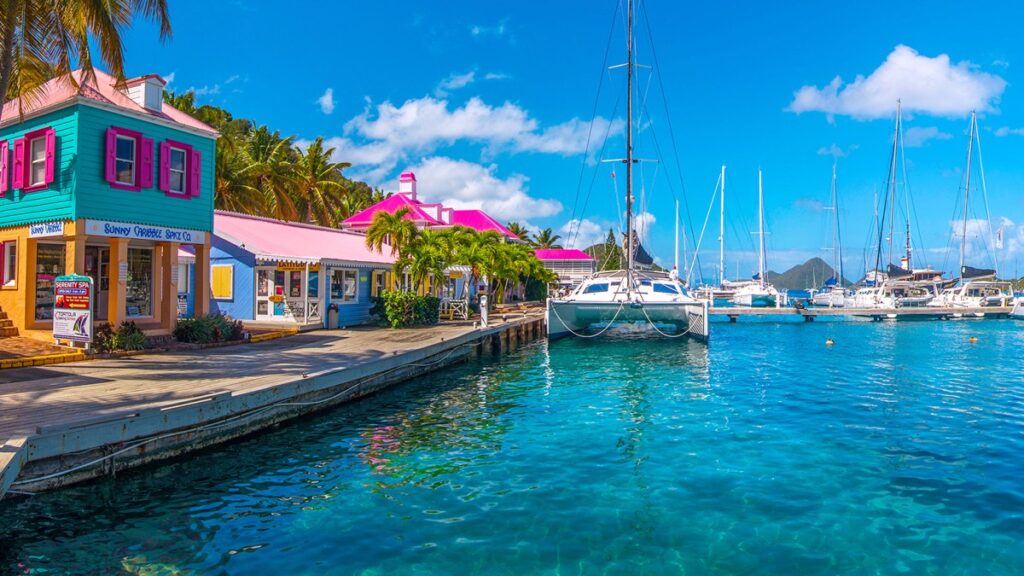讓SINO為您註冊成立海外公司
BVI vs Cayman: Choosing the Right Offshore Jurisdiction for Your Business
When considering offshore company formation, the debate between BVI vs Cayman often tops the discussion among international investors. Both the British Virgin Islands (BVI) and the Cayman Islands offer attractive offshore solutions, but each has distinct characteristics that may suit different business needs. As specialists in cross-border company registration with offices in Hong Kong, China, and Australia, Hua Ao Accounting provides expert guidance to help you navigate the BVI vs Cayman decision.
Key Similarities in BVI vs Cayman Offshore Structures
Before examining the differences in the BVI vs Cayman comparison, it's important to understand their shared advantages:
- Tax Neutrality: Both jurisdictions impose no corporate income tax, capital gains tax, or withholding taxes
- Political Stability: As British Overseas Territories, both benefit from stable legal systems based on English common law
- Privacy Protection: Neither jurisdiction requires public disclosure of company shareholders or directors
- Currency Flexibility: Companies can operate in any major currency without restrictions
- Reputation: Both are well-established, respected offshore financial centers
BVI vs Cayman: Detailed Comparison of Key Features
When analyzing BVI vs Cayman for your specific needs, consider these critical differences:
1. Company Formation Requirements
BVI Business Companies: - Minimum 1 shareholder and 1 director (can be same person) - No minimum capital requirement - Can be formed within 24-48 hours - No requirement for local directors
Cayman Islands Companies: - Minimum 1 shareholder and 1 director (can be same person) - Typically requires at least one local director - Formation usually takes 3-5 business days - May require more extensive due diligence documents
2. Ongoing Compliance Obligations
The BVI vs Cayman comparison shows different maintenance requirements:
BVI: - Annual government fee based on authorized capital - Must file annual financial return (but not financial statements) - No requirement for local audits
Cayman: - Higher annual government fees than BVI - Certain entities must file annual returns with financial statements - May require local registered office and agent
3. Legal Framework and Flexibility
In the BVI vs Cayman analysis, legal structures differ:
BVI Business Companies Act offers: - Greater flexibility in corporate structures - Simpler merger and reorganization provisions - More options for share classes and rights
Cayman Companies Law provides: - More established case law precedents - Better suited for complex financing arrangements - Preferred jurisdiction for hedge funds and investment vehicles
Industry-Specific Considerations in BVI vs Cayman
The choice between BVI vs Cayman often depends on your industry:
For Investment Funds: The Cayman Islands dominate the hedge fund industry, with about 75% of global hedge funds domiciled there. Cayman's regulatory framework for mutual funds is more developed than BVI's.
For Holding Companies: BVI companies are often preferred for straightforward holding structures due to lower costs and simpler compliance.
For Trading Companies: BVI offers more flexibility for international trading operations with fewer reporting requirements.
For Asset Protection: Both jurisdictions offer strong asset protection, but Cayman may be preferred for high-profile individuals due to its more established legal system.
BVI vs Cayman: Which Should You Choose?
Based on our experience assisting hundreds of clients with offshore company formation, we recommend:
Choose BVI If You Need: - Fast, cost-effective incorporation - Simple corporate structure - Minimal ongoing compliance - Flexibility in corporate governance
Choose Cayman If You Need: - Fund management vehicles - Complex financing structures - Greater legal precedent certainty - Higher profile international recognition
Common Mistakes to Avoid in BVI vs Cayman Selection
When deciding between BVI vs Cayman, investors often make these errors:
- Choosing based solely on initial costs without considering long-term compliance expenses
- Overlooking the impact of future business expansion plans on jurisdiction suitability
- Failing to consider tax treatment in the investor's home country
- Ignoring banking challenges - some banks prefer one jurisdiction over the other
- Not accounting for potential changes in international regulations affecting both jurisdictions
How Hua Ao Accounting Simplifies Your BVI vs Cayman Decision
Our cross-border expertise helps clients navigate the BVI vs Cayman choice with:
Comprehensive Analysis: We evaluate your specific business needs, tax situation, and growth plans to recommend the optimal jurisdiction.
End-to-End Service: From initial company formation to annual compliance, we handle all aspects of your offshore structure.
Integrated Solutions: For clients operating across multiple jurisdictions, we ensure your BVI or Cayman entity works seamlessly with your Hong Kong, China, or Australian operations.
Banking Support: We assist with corporate bank account opening, which can be challenging for offshore entities.
Making the Right Choice Between BVI and Cayman
The BVI vs Cayman decision ultimately depends on your specific business requirements, industry, and long-term objectives. While BVI offers simplicity and cost-effectiveness, Cayman provides greater sophistication and recognition for certain financial activities.
At Hua Ao Accounting, we don't just help you register your offshore company - we provide strategic advice to ensure your chosen jurisdiction aligns with your overall business goals. Contact our team of cross-border specialists today for personalized guidance on whether BVI or Cayman is right for your international business structure.
成立離岸及海外公司

Why do you need to set up an overseas company?
Shareholders and controlling parties hope to obtain a certain degree of confidentiality, or hope to reduce the constraints of supervisory agencies on equity transfers.
For example: Holding a Hong Kong property company by setting up an overseas company in Hong Kong, such as a BVI holding a Hong Kong company and then holding local properties
When selling a property to transfer the owner, only the share change in BVI is required, which can greatly reduce the payment of Hong Kong property stamp duty.
How should investors choose to set up an overseas company?
The more common ones are British Virgin Islands registration (BVI company) and Cayman Islands registration (Cayman Islands). How to choose between the two?
To answer the above questions, investors should consider many factors such as budget, purpose, strategy, etc. to choose the appropriate jurisdiction for their offshore company.
Accordingly, the Company does not attempt to suggest or induce clients to prefer one jurisdiction over another.
The company will show the main differences between the British Virgin Islands (BVI) and the Cayman Islands.
成立海外公司、英屬維爾京群島BVI註冊公司、開曼群島註冊公司
However, there are some differences between the British Virgin Islands (BVI) and the Cayman Islands: The first difference between the two British Overseas Territories comes from the purpose for which offshore companies are used, especially in terms of confidentiality and holding company structures. People prefer to set up BVI companies to protect information about shareholders and the board of directors. The BVI has the strongest laws in terms of confidentiality and stakeholders are assured that they will set up a company in the BVI when their information is protected by law. The British Virgin Islands International Business Companies Ordinance 1984 (as amended) contains extended privileges for companies and strict confidentiality requirements.
On the other hand, the Cayman Islands is known as one of the hot jurisdictions for financial supervision. For funds, banks, and wealthy people, it will be a good choice to explore financial opportunities across borders through the financial license of the Cayman Islands government.
The regulatory framework is the second difference between the BVI and the Cayman Islands. While both countries require companies to audit their investment funds, the BVI does not require companies to follow local audits, while the Cayman Islands requires companies engaged in funds to have their audits conducted locally.
The British Virgin Islands (BVI) and the Cayman Islands are British Overseas Territories. Each jurisdiction has its own government responsible for internal self-government, while the UK is responsible for external affairs, defence and the courts (both islands have the same legal system).
The British Virgin Islands and the Cayman Islands are well-known jurisdictions for offshore companies. The governments have created an open environment and established effective regulations to attract foreign investors. Offshore companies in the British Virgin Islands and the Cayman Islands will receive huge benefits, including:
1. There is no corporate tax and no capital controls
2. No tax on personal inheritance and gifts
3. Simple and effective registration system
4. Confidentiality of owner and shareholder information
5. Asset protection and a solid legal framework
6. Sign agreements with many jurisdictions and regions to avoid double taxation
Incorporating a company in the British Virgin Islands is quicker than in the Cayman Islands. The process starts with filing the Memorandum and Articles of Association (MAA), the Articles signed by the proposed Registered Agent (RA – must be filed for his consent to act) submitting the MAA, a copy of the Articles and obtaining the Certificate of Incorporation usually takes 24 hours in the British Virgin Islands. The registrant will receive the Certificate of Incorporation within five business days, or two business days after providing an additional surcharge.
In addition, the pre-approved functions of investment role licenses issued by China, Hong Kong, Brazil, the United States and the United Kingdom are accepted in the British Virgin Islands, so no further approval functions are required. In view of the fact that investors in the Cayman Islands may spend more time, add more legal fees and expenses to apply for new regulatory licenses when the Cayman Islands government does not grant pre-approved investment role functions, including managers, administrators, trustees, auditors, etc. issued by other countries /regions. Generally, the incorporation process in the British Virgin Islands may take four to five hours, and in the Cayman Islands may take one to two days.
The British Virgin Islands attracts more investors from Russia, Asia, and is not a bad idea for small business owners with limited budgets, where corporate privacy is their main concern, and the Cayman Islands is an ideal location for large corporates looking for investment opportunities in the fund space or using the proposed company as a future holding structure and familiar with many institutional investors from South America and Western Europe.
Tax savings, simple registration process, confidentiality, asset protection and the opportunity to go international are the main benefits of setting up a company in the British Virgin Islands and the Cayman Islands. However, you should carefully consider your needs, objectives and circumstances when choosing a country.
